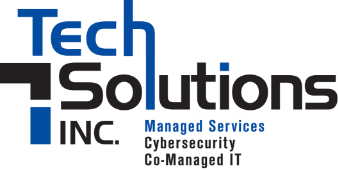During Cybersecurity Awareness Month, Small and Medium-sized Businesses (SMBs) should focus on several critical points to strengthen their cybersecurity posture. While large enterprises often have dedicated resources for cybersecurity, SMBs are typically more vulnerable due to limited budgets and expertise. However, these businesses are still significant targets for cyberattacks and should take as many steps as they can to prevent one and recover quickly. Here are the main points SMBs should address to strengthen their cyber posture:
1. Employee Training and Awareness
- Why it matters: Human error is often the weakest link in cybersecurity. Phishing, social engineering, and other tactics frequently target employees who are unaware of common threats.
- Action: Provide regular training sessions on how to recognize phishing emails, suspicious links, and safe internet practices, and establish clear protocols for reporting potential security issues.
2. Strong Password Policies and Multi-Factor Authentication (MFA)
- Why it matters: Weak or reused passwords are common entry points for attackers. MFA adds an extra layer of security.
- Action: Implement strong password requirements (minimum length, complexity). Use MFA for all critical business accounts and applications to reduce the risk of unauthorized access.
3. Data Backup and Recovery Plans
- Why it matters: Ransomware attacks can cripple SMBs by locking access to essential data. Without proper backups, recovering from such an attack can be difficult and costly.
- Action: Establish automated data backup systems and ensure that data is stored both on-site and in the cloud. Regularly test recovery procedures to confirm the backups work as expected.
4. Regular Software Updates and Patch Management
- Why it matters: Outdated software often contains vulnerabilities that cybercriminals exploit. Many SMBs overlook the importance of updating software regularly.
- Action: Set up automatic updates for operating systems, applications, and network devices, or designate someone to manually manage and implement patches on a regular basis.
5. Secure Network and Remote Access
- Why it matters: With the rise of remote work, unprotected Wi-Fi networks and insecure remote access can expose your business to cyber threats.
- Action: Use Zero Trust Network Access (ZTNA), virtual private networks (VPNs), secure routers, and firewalls to protect your business network. For remote work, ensure employees are connecting securely via company-approved methods.
6. Endpoint Security and Antivirus Protection
- Why it matters: Malware and viruses can compromise individual computers and spread across the business network.
- Action: Ensure all devices have up-to-date antivirus and anti-malware solutions, preferably using an Endpoint Detection and Response solution. Monitor and manage all endpoints, including laptops and tablets, with endpoint security tools.
7. Vendor and Third-Party Risk Management
- Why it matters: Many SMBs rely on third-party services, and any vulnerability in a vendor’s system can lead to a breach in your own business.
- Action: Assess the cybersecurity practices of your vendors, and ensure they comply with your security policies. Maintain clear contracts about data protection and response to breaches.
8. Incident Response and Reporting Plan
- Why it matters: In case of a cyberattack, a clear, well-practiced response plan helps minimize damage and downtime.
- Action: Develop an incident response plan that includes identifying, reporting, and mitigating security breaches. Ensure employees know who to contact and what steps to take if they notice suspicious activity.
9. Cybersecurity Insurance
- Why it matters: Cyberattacks can have a significant financial impact on SMBs, sometimes leading to a business closure. Cybersecurity insurance helps mitigate these financial risks.
- Action: Evaluate your need for cybersecurity insurance, which can cover costs related to breaches, legal fees, and business interruption.
10. Compliance with Regulations
- Why it matters: Many SMBs operate in industries that are subject to specific data protection and cybersecurity regulations (such as GDPR, HIPAA).
- Action: Stay up to date on industry regulations and ensure your business adheres to required cybersecurity standards.
Cybersecurity Awareness Month provides SMBs with the opportunity to review and enhance their cybersecurity practices during a period where best practices and commentary are top of mind for everyone. By addressing these areas, SMBs can:
- Reduce the risk of data breaches and financial loss.
- Build a culture of security awareness among employees.
- Improve customer trust by showing a commitment to protecting sensitive data.
- Ensure compliance with industry regulations and avoid costly fines.
Staying proactive and aware of the latest cyber threats helps SMBs protect their assets, safeguard customer data, and maintain business continuity. It may be overwhelming at first to consider all these points mentioned at once, but taking small steps is better than doing nothing and leaving your business at more risk to threats.
If you have questions or concerns about how your SMB is currently handling its cybersecurity plan, give TechSolutions a call today!

